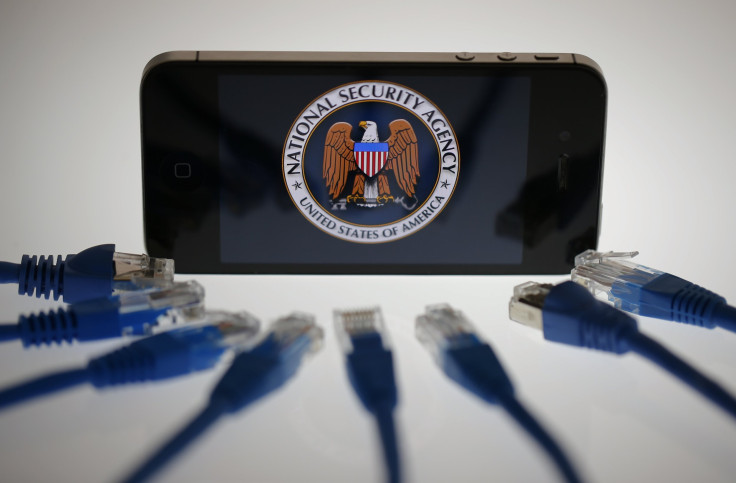After NSA Leaks, ACLU Lawsuit Could Be Tip Of The Iceberg

Edward Snowden says he blew the whistle on the government’s sweeping phone surveillance in order to reveal the secret program to the American people. But the most important outcome of the spectacular leak may be that, for the first time, it opens the door to challenging surveillance provisions of the USA Patriot Act in court.
On Tuesday, the American Civil Liberties Union filed a lawsuit over what it called the government’s “dragnet” surveillance program, alleging it violates First and Fourth Amendment rights. Such an allegation wasn’t even possible before Snowden revealed the program last week.
In the past, courts have dismissed cases on the government's monitoring programs because proving surveillance against any one person would mean declassifying state secrets. Without such proof, no one had standing to challenge the surveillance they believed was taking place – the courts never even ruled on the merits of the challenge. But Snowden’s leak, which led members of Congress and the administration to confirm the massive surveillance program, means that virtually all Americans now have standing to take the issue to court.
In its complaint, the ACLU notes that it is a Verizon customer – the company named in the secret court document leaked by Snowden – meaning the group has proof that the government has been collecting data on its often-sensitive communications for years. In a press release, the ACLU noted that unlike in other cases over government monitoring, its attorneys “do not expect the issue of standing to be a problem in this case because of the [Foreign Intelligence Surveillance] Court order revealed last week.” The ACLU complaint asserts the program “allows the government to learn sensitive and privileged information about their work and clients, and it is likely to have a chilling effect on whistleblowers and others who would otherwise contact Plaintiffs for legal assistance.”
The ACLU’s suit, the first of its kind since the program was revealed last week, argues that the program violates Patriot Act Section 215, the so-called “business records” provision under which the government claimed the authority for the National Security Agency to collect telephony metadata on virtually all Americans. Other groups have since sued for the release of classified documents related to the leak. “This surveillance is not authorized under Section 215 and violates the First and Fourth Amendments,” the complaint reads.
But this isn’t the only type of challenge that the government is now vulnerable to. Subsequent lawsuits could make the more sweeping case that it’s not merely the government’s use of Section 215 that is unconstitutional, but that the provision itself violates the Fourth Amendment.
Given the various interpretations of Section 215, one potential legal case against it is that the law is too vague. “You can’t have vague laws because one of the purposes of the law is to let people know what could be done and what can’t be done, so you could argue that it’s too vague,” said Anthony Clark Arend, an expert in international law at Georgetown University.
According to Arend, the potential lawsuits don’t stop there. “The other argument, essentially, would be that the law violates the Fourth Amendment because it constitutes an unreasonable search or seizure,” Arend said, though he doesn’t necessarily believe such a challenge would be successful.
A fourth option, though one less likely to succeed, would be to argue that the FISA court process itself is unconstitutional. In the last several years, the Foreign Intelligence Surveillance Court has granted nearly all the government’s surveillance requests and its opinions, including its interpretation of Section 215, are secret. “If the provision of the Patriot Act violates the Constitution, violates the Fourth Amendment, you could also get it to a point where someone’s going to say, ‘OK, the ability of this court in a classified fashion to issue this order, that also violates the spirit of the Fourth Amendment,” Arend said, then adding, but “I doubt that seriously.”
Though some challenges are more likely than others, Snowden’s leaks mean the ACLU’s lawsuit could be just the tip of the iceberg.
© Copyright IBTimes 2024. All rights reserved.






















